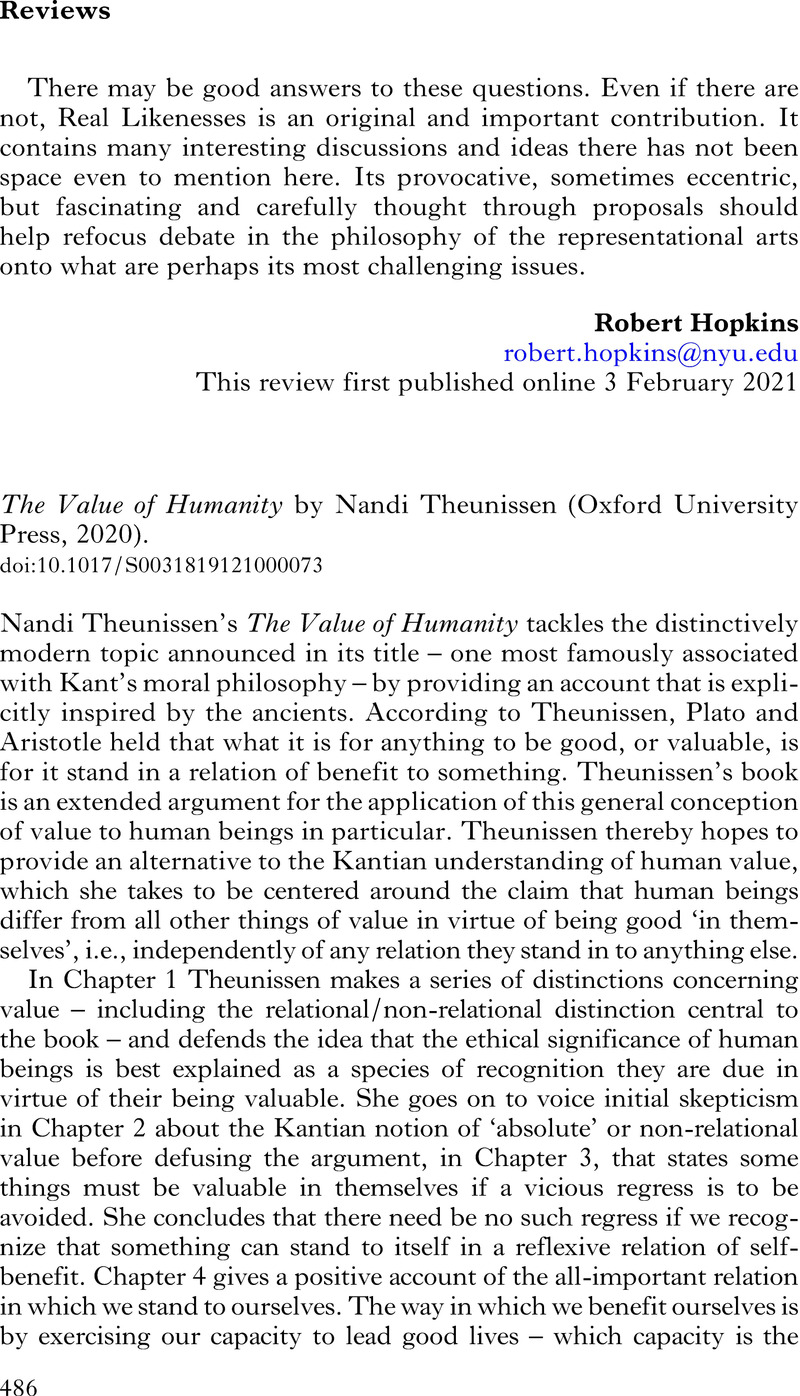No CrossRef data available.
Published online by Cambridge University Press: 30 April 2021

1 It does seem to strain the ordinary meaning of ‘good for’ to say that one's capacity is ‘good for’ or, especially, ‘benefits’ its exercise, but I ignore this in what follows.
2 To characterize Kant as holding that the good will is of supreme value because it ‘benefits us’ sounds precisely backwards – but that is only because those words normally suggest some further benefit, or good, than that which is contained simply in willing correctly. We can instead say: Given the sort of beings we are according to Kant – finite rational agents – the activity proper to us, and through which we are faring well, is that activity associated with the good will.